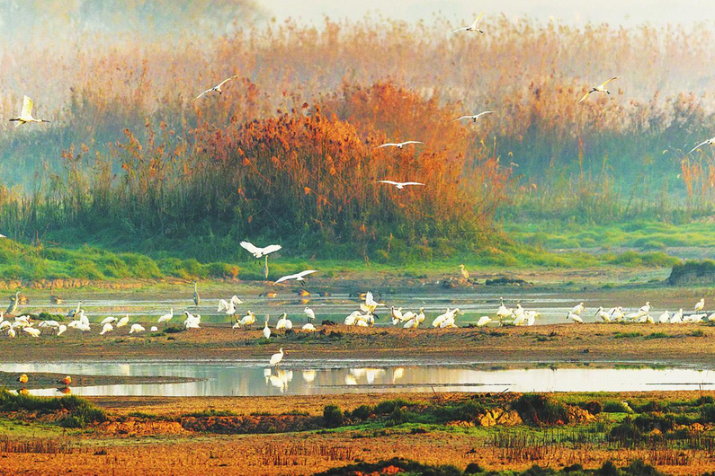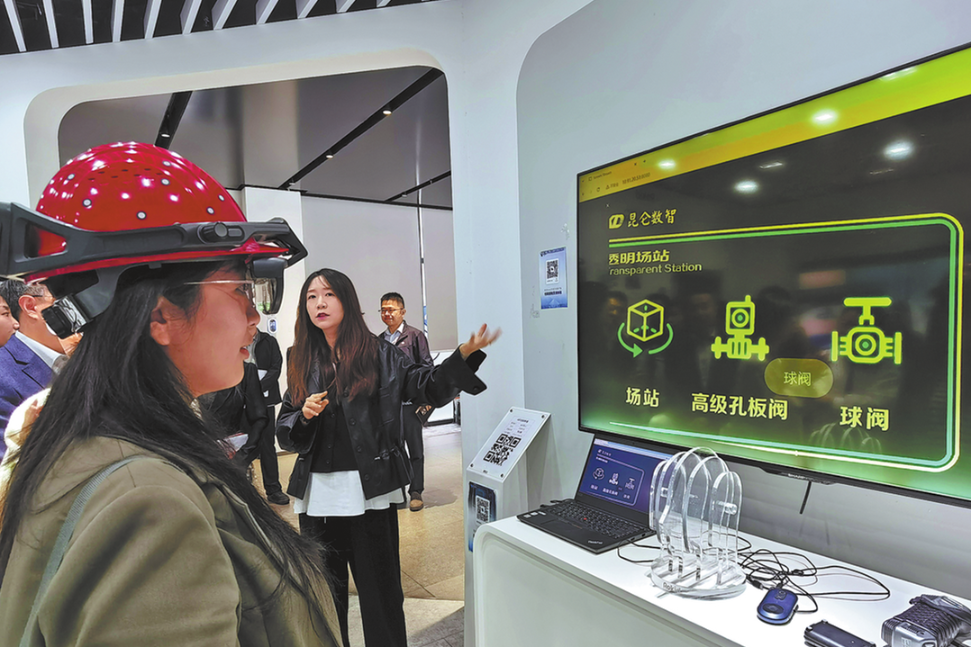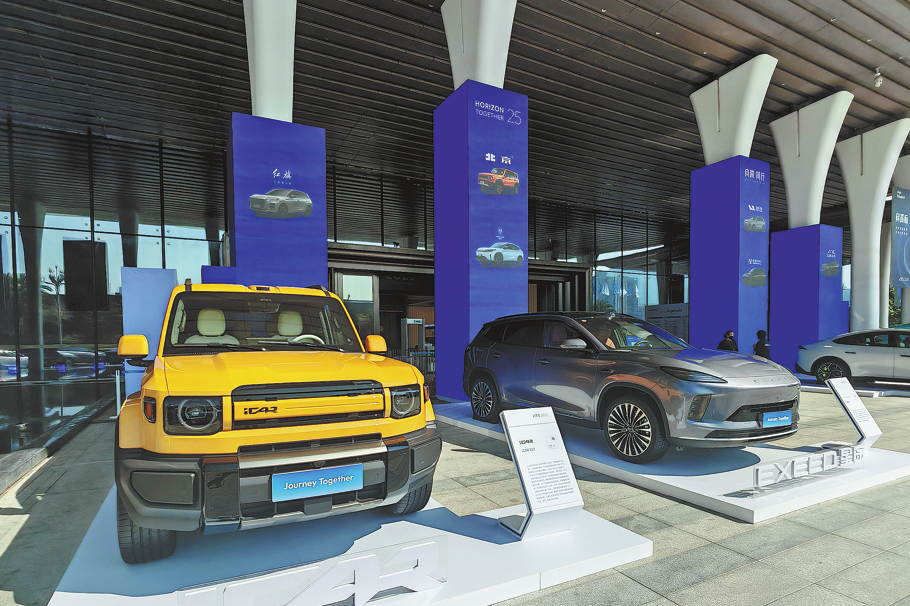Ironing out the creases

| Dong Xianhui says modern factory systems have given him an edge over many of his competitors. Fu Jing / China Daily |
Egypt's recent turbulent past left the hopes of one Chinese textile entrepreneur in tatters, but gradually business is recovering
Dong Xianhui's five years running a small carpet and blanket factory in Egypt have been turbulent to say the least - everything from changes of government, to economic slowdown, to rising wages and import tariffs.
But a lifetime spent in the rag trade has taught the young general manager to be resilient, and he says he is starting to see signs of light at the end of what at times has been a long tunnel.

"The Egyptian revolution had an overwhelming impact on our business here, and I have been taught to be cautious and confident at the same time," says the 25-year old, whose Ya'ou Textile Factory is based in the China-Egypt Suez Economic and Trade Cooperation Zone, about half an hour's drive from the Suez Canal.
The fatory is one of 30 Chinese projects in the zone, which has been created in desert surroundings, just a few kilometers from the shores of the Red Sea.
Dong's plant consists of a standard 2,700 square meter workshop, and 8,000 sq m of storage.
His products are targeted at only the Egyptian market, which enjoys its best sales in winter, but he says the factory's closeness to the main population centers offers him the perfect location.
Ya'ou Textiles made its first push into Egypt in 2009, after setting up operations in five other countries.
"We quickly realized that Egypt is a really tough market," Dong says, "even without a revolution."
Dong's father, a sewer, first started the family firm in the 1990s from scratch, in his hometown of Wenzhou, in Zhejiang province, a city famous for entrepreneurs.
Dong senior had previously traded in carpets and blankets, mainly in the Xinjiang Uygur autonomous region.
"The business was small then, but I grew up with it, understanding from a young age what hardships were involved in running a small business," Dong says.
Working in Xinjiang provided him with valuable lessons in dealing with people in an Islamic culture, he says.

"This was very helpful for me when I came to Egypt - I understood how to respect people from different cultural backgrounds," he says.
His parents started their first textiles factory a decade ago with just one loom.
"We even had to borrow money to buy that," he remembers. "But my father's courage in starting from nothing is something I am very proud of him for."
Now based in Changshu, Jiangsu province, his father's Huanhai Textile Factory covers three hectares, employs 400 workers, and has five overseas offices including in Pakistan, India and Egypt, its first international venture.
Last year, total sales from all the family's businesses were worth about $40 million, with Egypt accounting for a tenth of that.
Egyptian market regulations allow only locally made textile products to be sold, so the business in China could only export semi-manufactured goods to the country, to be made into larger items such as prayer mats and blankets.
Dong employs 80 local workers, but at its pre-revolution peak, it had nearly double that number.
Its difficulties really started in 2011, with the country's revolution against former president Hosni Mubarak.
Economic growth halved, and people simply stopped buying, he says, even though his average sale price was just $6. His costs spiraled as the value of the Egyptian pound slumped, as suppliers demanded payment in dollars. Any profits evaporated.
"All these difficulties were really felt in 2012, and they created a lot of headaches for a small business like ours," Dong says.
"And as Egypt lacked foreign reserves at that time, it even became difficult for us to find dollars to pay anyone."
To make matters worse, wages then started to rise, as did tariffs on some imported goods.
In 2009, Dong was paying his workers $120 a month, but that nearly doubled. Egypt also increased its import duties on semi-manufactured goods by 20 percent.

The country had always been famous for producing quality cotton and textiles, but many of its manufacturers had failed to upgrade their equipment. Suddenly the industry became uncompetitive as a result, despite the continued quality of its products.
But despite the growing list of problems, Dong says he is determined to continue in Egypt, and he is already seeing signs of a recovery.
The fluent English and Russian speaker says his modern factory systems have given him an edge over many competitors.
"Added to the skills I learned as a boy, I am confident I can still achieve more in Egypt," he says confidently.
He has already started diversifying his product portfolio away from just low-end goods - some of the sheets and blankets he is selling are now priced at $30.
"That's a difficult transition, because in the past many Egyptian consumers associated Chinese-made products with low quality.
"But I am already finding some customers who appreciate that China can also produce quality."
fujing@chinadaily.com.cn
(China Daily Africa Weekly 08/29/2014 page20)
Today's Top News
- HK's Jimmy Lai convicted in national security case
- China announces countermeasures against former Japanese senior official
- Australia set to further tighten gun control laws
- HKSAR security chief on conviction of Jimmy Lai
- Jimmy Lai's verdict sends clear messages
- Japanese scholar condemns Japan's risky defense spending































